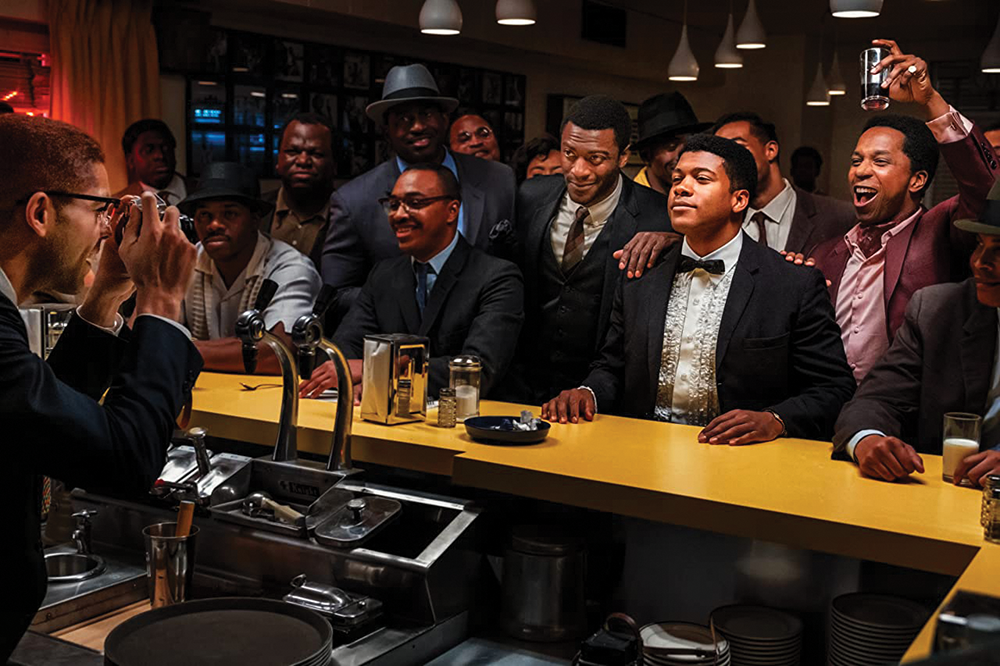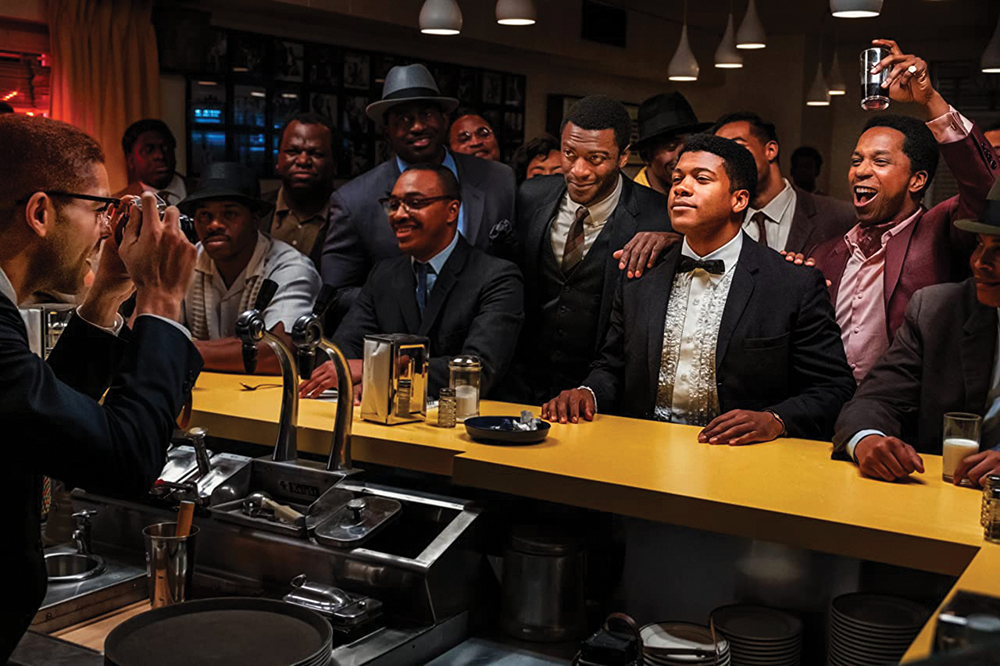★★★★☆
When Kemp Powers’ “One Night in Miami” first hit the stage in 2013, the play attempted to showcase what would happen if civil rights activist Malcolm X, singer Sam Cooke, boxer Muhammad Ali and football player Jim Brown spent one night together. Seven years later, Powers adapted this poignant story for the screen and released the film version of “One Night in Miami” on Dec. 25, 2020.
The movie begins with an introduction to each of the four characters’ lives in 1964. Viewers see Muhammad Ali (Eli Goree) win a fight. Jim Brown (Aldis Hodge), a highly regarded football player, experiences racism in his hometown. Sam Cooke (Leslie Odom Jr.) sings at the Copacabana to an unenthusiastic white audience. The most famous of the four, Malcolm X, (Kingsley Ben-Adir), speaks for Black independence while worrying for his life, fearing both white racists and members of his own Islamic brotherhood.
The four rather distinct individuals soon found themselves in the same place at the same time Feb. 25, 1964, to celebrate the win of Ali’s boxing match, making him the world’s new heavyweight champion. Their expectations of a party are soon diminished, however, when they arrive at Malcolm X’s motel room to find that he has not planned one.
The majority of the film centers around Malcolm X and Cooke’s argument about how Black individuals should deal with white people and enduring racism. While most of the movie is a series of conversations, it leaves the audience with a lot to consider regarding its own role in the racial discussion, especially in light of the enduring Black Lives Matter movement. The film forces individuals to think about the appropriate actions they ought to be taking on the path toward racial justice.
Thanks to its unique premise and meaningful topics, “One Night in Miami” does not struggle with the lack of vibrancy and appeal that often plague play adaptations. The story takes four famous men and places them in an unglamorous setting in order to tell the most crucial stories.

Although a current audience knows Malcolm X and Ali’s historical significance, this film catches them slightly before their prime, allowing viewers to see them without the famous speeches and the boxing gloves.
The play demonstrates Black life in the ’60s without even a mention of Martin Luther King Jr., which is not the case with most other ’60s-centered movies, leaving valuable space for new perspectives and stories that history often ignores. Via these newer voices, viewers get to see conversations that are raw, emotional and still feel relevant in 2021.
The stellar acting from each member of the group makes the serious conversations come alive. Nominated for a Golden Globe for his performance, Odom Jr. delivers an enticing performance as Cooke, exposing an assortment of emotions through just a few lines. Expertly reacting to Cooke’s occasionally flippant attitude is Ben-Adir, who manages to convey Malcolm X’s disposition perfectly with facial expressions and timely pauses.
The movie was directed by Regina King, whose directorial debut came shortly after her Academy Award win for Best Supporting Actress in “If Beale Street Could Talk.” Her skills as an actress directly translate to her work as a director, with “One Night in Miami” captivating audiences even within the limited setting of the hotel room.
The devotion of the film’s direction to actual reality is another part of what makes it so great. In fact, many of the photos that Malcolm X takes in the film are based on real images that can be found online.
The only fault with the movie is its overly extensive exploration of the characters’ backstories. The film is built upon the notion of one night, yet King dedicates the first 45 minutes to meeting the characters days beforehand. So much of the film’s brilliance comes from the plot’s ordinary nature: a conversation among four men in a hotel room. Devoting so much screen time to these characters before their night together takes away from the script’s beauty and the fascination of learning about a character based on very little background information.
The movie expertly portrays feelings of being used, of never being good enough and of never being respected. As Malcolm X reflects near the end of the film, perhaps justice will never occur. As is common with play adaptations, the film leaves with a concrete conclusion. The night in Miami is over, but there is so much awaiting these four men.
The film ends with the song “Speak Now,” sung by Odom Jr. and nominated for a Golden Globe. The lyrics, “I swear we’ll never find a way to where we’re going all alone / Don’t take your eyes off the road,” perfectly summarize the currents of isolation and hope that run through “One Night in Miami.”



















